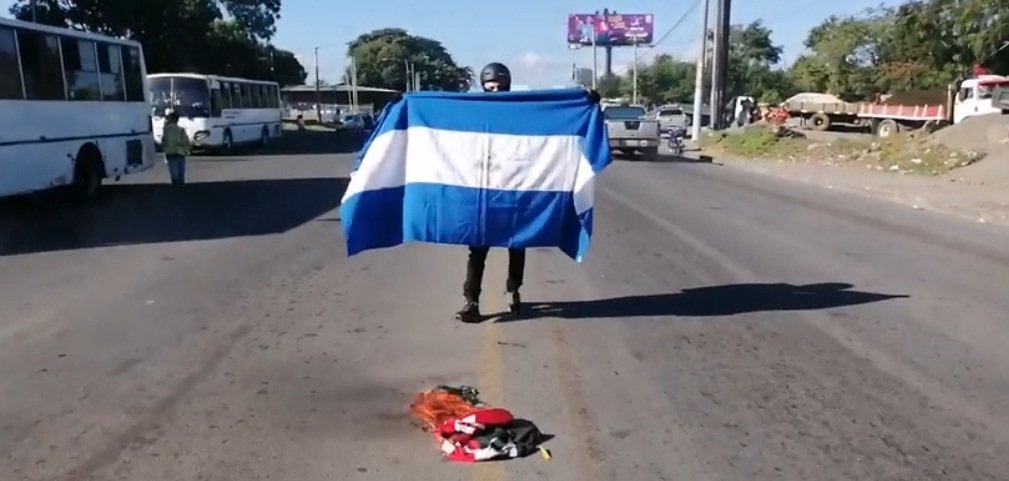
Association
Nicaragua: Law Threatens Free, Fair Elections https://t.co/s8K5fw56t8
— Human Rights Watch (@hrw) December 22, 2020
On 21st December 2020, Nicaragua’s National Assembly approved a law that may prevent opposition candidates from participating in the upcoming presidential elections scheduled for November 2021. The legislation prohibits so-called “traitors to the homeland” (“Traidores a la Patria”) from running for public office, defining such persons in broad terms. Included in the vague legislation as “traitors”, for example, are those that “undermine independence, sovereignty and self-determination”, “support sanctions on the State of Nicaragua” or “damage the supreme interests of the nation”. However, the law does not provide any information on how someone will be determined a “traitor”.
Human Rights Watch said this legislation is inconsistent with regional and international human rights law. José Miguel Vivanco, the organisation’s Americas director, commented:
“With this law in force, there is little to no hope of free and fair elections in Nicaragua.”
On 18th January 2021, the National Assembly approved another law which could be used to target political opponents. In this case, lawmakers passed a constitutional amendment permitting life sentences for “hate crimes”. The country’s Criminal Code will be reformed to regulate the law’s application. Previously, Nicaragua’s Constitution established 30 years as the maximum penalty. While lawmakers from the government caucus argue the legislation is aimed at perpetrators of homicides or sexual crimes, opposition groups expressed concern that the change could also be used to target political opponents. President Daniel Ortega and other members of government have previously accused opponents of “hate crimes”.
Political persecution of rights defenders and dissidents
Detención ilegal contra abogados de CPDH. https://t.co/zq4MA8a948 pic.twitter.com/F3PVEaYUE6
— Comisión Permanente de Derechos Humanos (@CPDHNicaragua) December 21, 2020
On 21st December 2020, police detained three members of civil society organisation Comisión Permanente de Derechos Humanos de Nicaragua (Permanent Commission on Human Rights - CPDH). The detention took place as lawyer and human rights defender Pablo Cuevas visited former political prisoners who have allegedly faced police harassment. Cuevas and two other CPDH employees were released a few hours later. In a press conference, Cuevas said his mobile phone was examined and that the police deleted some content such as contacts.
In a separate development, on 18th January 2021 family members of Benjamín Ernesto Gutiérrez Collado together with Yolanda González Escobar denounced political persecution in Nicaragua. Gutiérrez is a dissident formerly allied with the Sandinista Front, while González has participated in anti-government protests. According to Benjamín Gutiérrez’s daughter, on 13th January 2021 he was violently detained by police under accusations of narcotics trafficking and illegal arms possession. Two days later, police raided Yolanda González’s house and temporarily detained her, accusing her of associating with Gutiérrez. Officers reportedly also took money and personal belongings during the house raid.
Peaceful Assembly
🔴Ahora👉Un joven protesta pacíficamente por el sector de la UCA, el valiente opositor quemó la bandera roja y negra del sandinismo, mientras portaba la bandera azul y blanco. La Policía llegó inmediatamente para quitarle la bandera de Nicaragua. @reporteni @traficoni pic.twitter.com/ivBh5C51U8
— CANAL UNO - NICARAGUA (@canaluno1Nic) December 21, 2020
On 21st December 2020, Sergio Beteta was detained in Managua after holding a one-person protest in front of the Central American University, at which he burned a Sandinista Front flag and raised a Nicaraguan flag. The young protester broadcast his action online, demanding the release of political prisoners. On 24th December 2020, the Inter-American Commission on Human Rights expressed concern about the case, saying Beteta’s family and lawyers had no information on his whereabouts. Early in January 2021, Beteta’s lawyer said the protester had been accused of drugs and illegal arms possession, which he alleges are false charges. On 18th January 2021, an initial hearing took place where a judge rejected a motion to dismiss the charge due to illegal detention.
Expression
Mi residencia en León fue allanada e irrumpieron por la fuerza con unidades de la policía de Fidel Dominguez, antimotines bajo la infamia de que buscan drogas. Responsabilizo al gobierno por la integridad de mi familia. @TifaniRoberts @CIDH @mbachelet @ACNURamericas @cefeche pic.twitter.com/9Cs5Qn0txA
— Anibal Toruño (@AnibalToruno) January 4, 2021
On 4th January 2021, press organisation Periodistas y Comunicadores Independientes de Nicaragua (Independent Journalists and Communicators of Nicaragua - PCIN) denounced police harassment against journalist and Radio Darío director Aníbal Toruño Jirón, in León. According to the organisation, at least ten police officers raided Toruño’s house, allegedly without a warrant. On Twitter, Toruño said that the officers claimed to be conducting a drug search. In their statement, PCIN said this was an attempt to stigmatise the journalist by associating him with criminal activities. In the following days, Toruño reported that police officers continued to monitor Radio Darío and conducted another raid on his house on 7th January 2020.
At the end of December 2020, PCIN reported receiving 66 complaints of press freedom violations between 15th July and 15th December 2020. According to the data collected, police, paramilitary groups and government supporters were the most frequent perpetrators. The organisation highlighted an increase in cases of journalists accused of common crimes and misdemeanours, in a strategy adopted to discredit them.